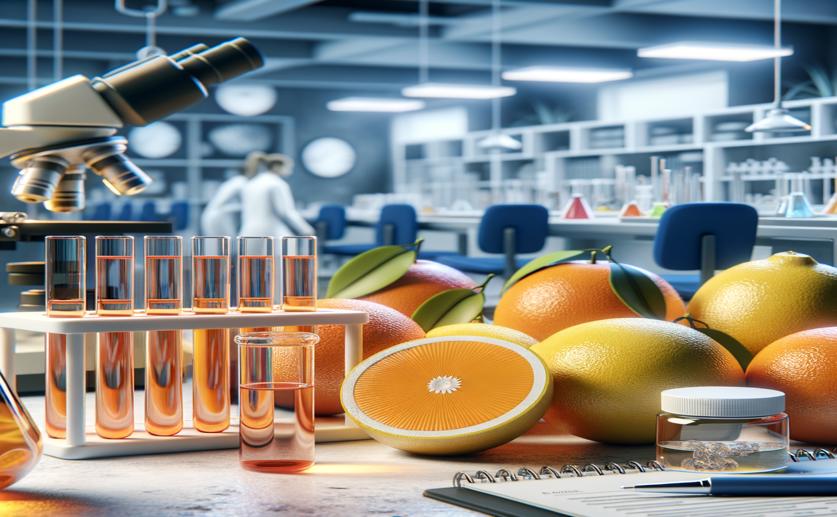
Measuring Citrus Intake with Urine Tests in a Dietary Study
Greg Howard
19th May, 2024

Image Source: Natural Science News, 2024
Key Findings
- The study from Harvard T.H. Chan School of Public Health developed a method to correct errors in food frequency questionnaires (FFQs) using food biomarkers and 7-day diet records (7DDRs)
- Researchers found that urinary proline betaine, a biomarker for citrus intake, was moderately correlated with orange juice intake but weakly correlated with oranges and grapefruits
- After calibrating FFQ data with biomarkers, the mean intake levels closely matched those from 7DDRs, proving the calibration method's effectiveness
References
Main Study
1) Calibration of citrus intake assessed by food frequency questionnaires using urinary proline betaine in an observational study setting.
Published 16th May, 2024
https://doi.org/10.1016/j.ajcnut.2024.05.011
Related Studies
2) Biomarker-calibrated dietary energy and protein intake associations with diabetes risk among postmenopausal women from the Women's Health Initiative.
3) Biomarker-calibrated energy and protein consumption and cardiovascular disease risk among postmenopausal women.



 3rd May, 2024 | Greg Howard
3rd May, 2024 | Greg Howard